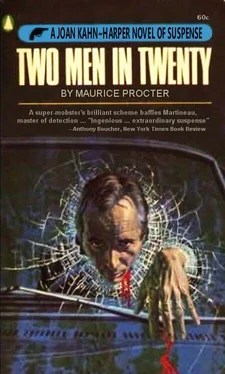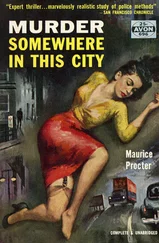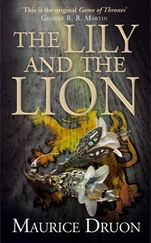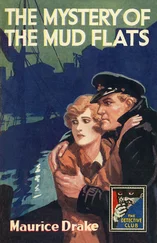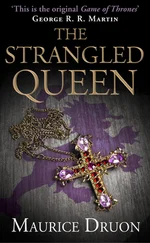Maurice Procter - Two men in twenty
Здесь есть возможность читать онлайн «Maurice Procter - Two men in twenty» весь текст электронной книги совершенно бесплатно (целиком полную версию без сокращений). В некоторых случаях можно слушать аудио, скачать через торрент в формате fb2 и присутствует краткое содержание. Год выпуска: 1963, Издательство: London : Hutchinson, Жанр: Полицейский детектив, на английском языке. Описание произведения, (предисловие) а так же отзывы посетителей доступны на портале библиотеки ЛибКат.
- Название:Two men in twenty
- Автор:
- Издательство:London : Hutchinson
- Жанр:
- Год:1963
- ISBN:нет данных
- Рейтинг книги:4 / 5. Голосов: 1
-
Избранное:Добавить в избранное
- Отзывы:
-
Ваша оценка:
- 80
- 1
- 2
- 3
- 4
- 5
Two men in twenty: краткое содержание, описание и аннотация
Предлагаем к чтению аннотацию, описание, краткое содержание или предисловие (зависит от того, что написал сам автор книги «Two men in twenty»). Если вы не нашли необходимую информацию о книге — напишите в комментариях, мы постараемся отыскать её.
Two men in twenty — читать онлайн бесплатно полную книгу (весь текст) целиком
Ниже представлен текст книги, разбитый по страницам. Система сохранения места последней прочитанной страницы, позволяет с удобством читать онлайн бесплатно книгу «Two men in twenty», без необходимости каждый раз заново искать на чём Вы остановились. Поставьте закладку, и сможете в любой момент перейти на страницу, на которой закончили чтение.
Интервал:
Закладка:
The gypsies worried Cain in one respect only. They needed a lot of police supervision. Not only were they hooligans, they were thieves. Police cars, with and without police markings, travelled along Grange Gardens more often than Cain liked.
Two days after the break-in at Hendry Brothers a pleasant-faced young man called at 9 Grange Gardens, at eleven in the morning. Dorrie answered the door. The young man concealed his surprise. He was going from house to house in this street of un-English people because he had been told to, and he had not expected to meet anyone like Dorrie.
'Good morning,' he said, touching his hat. 'I'm looking for lodgings. Do you have a vacant room?'
She did not need time to think of the answer to that one. She smiled and shook her head, while she noted that the man had no luggage, and that he was big enough to be a policeman. She became almost certain that he was a policeman. She could not have explained how she came to make that guess: something about him, she would have said; his eyes, maybe, or the way he looked at you, or the way he stood there on the step.
The man seemed to be disappointed. 'I do need to find a place around here,' he said. 'Are you likely to have a vacancy in the near future?'
Again Dorrie shook her head, realizing that if she said the house was full the man might discard his pleasant mask and begin to ask about the occupants. 'We don't have lodgers,' she said. 'We shall be moving when we find another house. All these foreigners, you know.'
'Quite.' The young man was satisfied. In any case, he could not ask any more questions without revealing his own pretence. He touched his hat again and left her. She closed the door and dropped the latch.
Cain had been standing behind the door. 'Copper?' he asked tensely.
'I think so. I'm almost sure so.'
'You handled it just right, kid. I don't like coppers coming here, though. I'm going to watch that bird.'
He went into the front room, which had been the lounge or sitting-room of Aunt Doris's boarding house, and peeped through the side of the curtains. He watched the man call at house after house until he could see no more of him. Half an hour later, staring thoughtfully out of the window, he saw him working his way back along the other side of the street. That satisfied him. 'You can forget it, Ducks,' he told his wife. 'He's on general inquiries re lodging houses. They're looking for us, and they won't find us.'
He did indeed feel certain that his home-from-home would not be found. Now, with all his team in one house, he was better able to impose the necessary discipline. Granchester was a big city, but its inhabitants did not have the anonymity which Londoners regarded as normal. Some of them could be curious about strangers, and for that reason he did not allow his men to enter public houses at all. Only occasionally did he go into a bar himself, with Dorrie and Flo for cover. And on those outings they did not talk much, but listened a lot.
The ban on drinking in public places really was an essential measure. No one knew better than Cain that his accomplices were not normal men. Generally speaking they recognized no restraint except those of superior force and immediate self-interest. It had taken a long lecture on self-interest to convince three out of the four that they would have to stay out of pubs altogether. To offset this, he offered compensations. When they were not working, or not about to work, they could drink as much as they liked at home. They could play cards or roll dice for limited stakes. If sober, they could go to a cinema or a show or a bingo session. For relief, they could go to Blackpool for short holidays, to get exercise and fresh air. When one of them wanted to go out at night and spend some time with a woman, permission was freely granted if he went alone, and sober. They were well fed by Dorrie, and waited on by Flo. They agreed that these conditions could be borne, for a period.
'Never forget,' Cain told them more than once. 'The coppers are busting a gut trying to find us. If we play it this way, they never will.'
Cain was interested in himself in the role of property owner. Posing as Flo's agent he went to the City Surveyor's office to see exactly what would happen to her two little houses in Naylor Street. He was shown a plan. The houses were some distance along a side street, but a wide, straight road to replace the old crooked one would run right over the ground where they stood. There was no hope for these two dwellings.
Nevertheless, it occurred to him that the two houses could be furnished cheaply and let profitably for as long as they were allowed to stand. He already had the keys. He went and inspected the houses. Naylor Street was a double row of blackened brick boxes. Each house had four rooms, a single-storey out kitchen, and a tiny paved backyard. The front doors opened straight on to the street. There were no bathrooms.
Cain at once gave up the idea of seeking tenants for such houses. Anybody who could afford to pay the rent he had in mind would want a better house and a better neighbourhood. He said as much to France that evening at supper.
France said: 'I've been thinking about those houses, too. If I were you I'd go ahead and furnish. On the cheap, of course.'
'Why in hell should I waste my time?'
'You've got everything worked out very nicely for this place. But accidents can happen. Suppose, one day, we all had to get out of here in a hurry. Where would we go?'
'You mean, get those houses ready for an emergency hideout? That's a smashing idea.' Cain stopped. He frowned. There's one snag. If the cops came here for us, and found us gone, they start finding out who owned the property. They'd get on the trail of Doreen Baker, and the lawyer would tell 'em Doreen's sister inherited those houses in Naylor Street, and they'd come nosing around.'
'I'm not so sure. They might get Doreen's name, under Baker, but if that lawyer still regards the girls as clients of his, he won't say a word about Flo. And in any case it'll take them days to find the lawyer. We wouldn't be leaving anything here with his name on it, would we?'
'No. You may be right. At least if we had to run to the other place we'd have a day or two to get organized and make our ways back to the Smoke. Yes, maybe I'll put a stick or two of furniture in one house, at any rate.'
So Cain began to frequent the salerooms, picking up shoddy old furniture for little more than the cost of removing it. He was careful. He did not visit any saleroom more than once. He took the risk of being remembered, but he could not imagine any happening which would cause the police to make inquiries about the sort of stuff he was buying.
One day he arrived, not at Naylor Street but at Grange Gardens, with a grandfather clock. He lifted it out of the car and carried it tenderly indoors, as if it were a priceless antique. He set it up in the hallway and stood back with an air of accomplishment.
The household came to look at it. 'Ugh, I'm not having that thing stood there,' Dorrie said. 'The place is bad enough as it is. I'm not having a clock ding-donging every hour of the night.'
'It looks like crap stuff to me,' Husker observed.
'It's about as antique as my Aunt Minnie's fur tippet,' Coggan remarked.
France made no comment. He opened the clock and looked inside.
'Why,' Dorrie said. 'It's got no works!'
'No,' her husband told her. 'It don't ding-dong and it don't tick-tock. But it'll brighten up the place a bit. I got it at firewood price.'
'Just about what it's good for,' Flo said.
'That's no way to talk about an antique clock case. Anyway, I've taken a fancy to it. It's going to stay on these premises a week or two.'
'In the cellar?' France suggested.
'Yes, I daresay the cellar would be best. Till we need it.'
Читать дальшеИнтервал:
Закладка:
Похожие книги на «Two men in twenty»
Представляем Вашему вниманию похожие книги на «Two men in twenty» списком для выбора. Мы отобрали схожую по названию и смыслу литературу в надежде предоставить читателям больше вариантов отыскать новые, интересные, ещё непрочитанные произведения.
Обсуждение, отзывы о книге «Two men in twenty» и просто собственные мнения читателей. Оставьте ваши комментарии, напишите, что Вы думаете о произведении, его смысле или главных героях. Укажите что конкретно понравилось, а что нет, и почему Вы так считаете.
